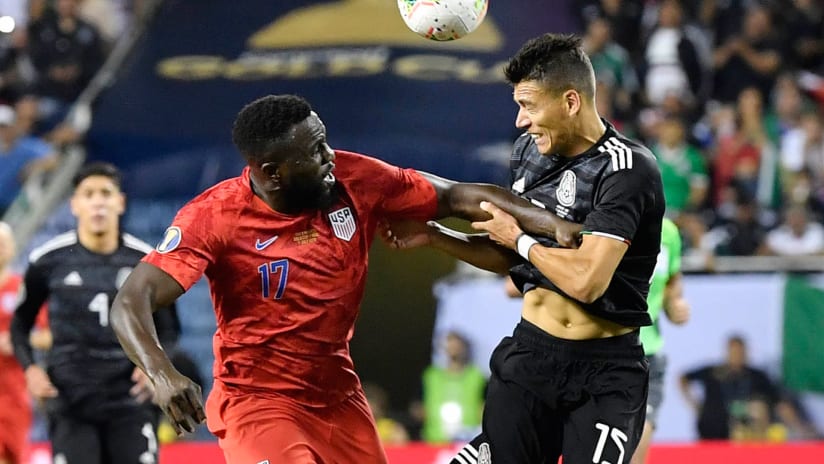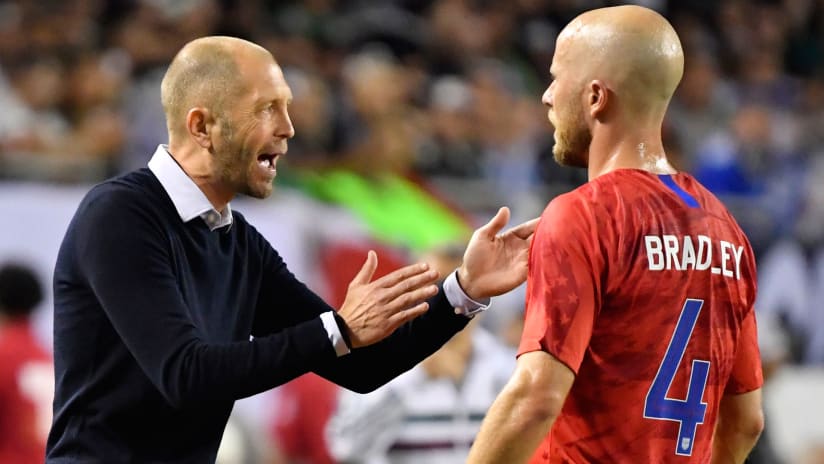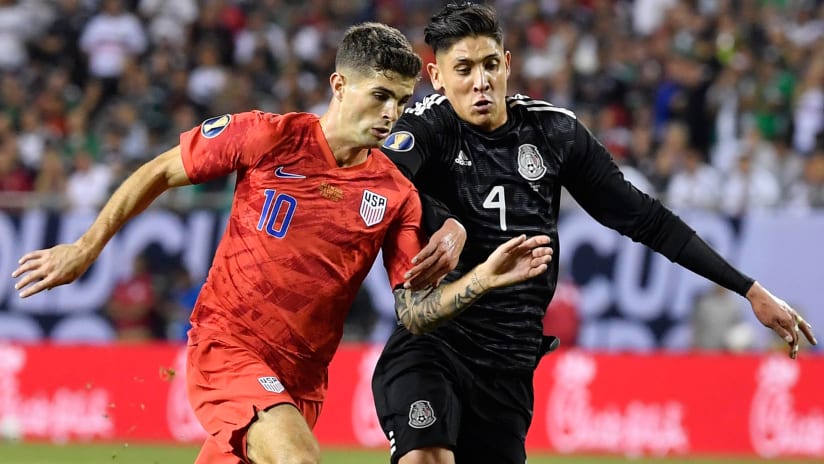CHICAGO – The United States and Mexico are stuck with each other. Literally, of course, but also in men’s soccer, where they’ve largely handed the crown as kings of North American soccer back and forth between each other since they first faced off for a qualifying spot in the 1934 World Cup.
Sunday night at Soldier Field was no different, as Mexico won the Gold Cup in a 1-0 victory over the defending champions, the US men's national team. It marked Mexico’s eighth continental title, with the USMNT not far behind with six after failing in their chance to equal Mexico’s trophy haul.
Such comparisons are endless, including in Gregg Berhalter’s postgame press conference, where the first question was about how he felt his squad compared to Mexico with 20 minutes of hindsight on the rivalry’s most recent installment.
“Over the course of the 90 minutes, Mexico were better,” Berhalter said, El Tri having dominated the second half and eventually gaining their reward with a 73rd-minute Jonathan Dos Santos goal. “Having said that, I think we came out and created some really good chances … I think what we lacked was some of the calmness and composure.”
That lack of composure was most evident in the eighth minute, when Jozy Altidore found himself through on goal following two excellent initial touches. His shot from near the penalty spot evaded Guillermo Ochoa, but rolled just wide of the Mexican goalkeeper’s left post.
At other times the Americans were simply unlucky, a 51st-minute header by Jordan Morris off a Christian Pulisic corner headed off the line by Andres Guardado. But as the second half wore on, Dos Santos’ eventual goal felt inevitable. After the final whistle, Altidore, his eyes still wet and red from postgame tears, tried to take it all in stride.
“We’ve got a young team and I think there’s moments of growth there,” the Toronto FC striker said of Mexico’s increasing dominance in the second half.
Added Michael Bradley, who on Sunday night played in his 12th US vs. Mexico game: “Not that every moment was perfect, but still we found some ways to put them on their heels.”
One drawback for the USMNT was the performance of Weston McKennie, who had arguably been the best player in the Gold Cup up to that point. He struggled to impose his will, both physically and through the precise variety of passes he had been executing in recent games, as the Mexican midfield combo of Dos Santos and Guardado often pressed him to the point that he was playing deeper than Bradley.
McKennie did not speak to the media postgame, and Berhalter declined to comment on the performance of McKennie, who on Sunday became the second-youngest player to ever captain the USMNT.
Berhalter praised Mexico for executing their game plan and wearing his players down (an understatement given some of the events of the first half), but otherwise wasn’t interested in comparing the two teams.
His focus remains educating his players on his principles of the game, continuing to reshape the USMNT into his image of a possession-based, defensively solid, free-flowing attacking force to be reckoned with.
A win Sunday could have indicated this transformation was ahead of schedule. Instead, Mexico showed that the US still have work to do on achieving Berhalter’s final vision.
“You’re always searching for a perfect performance,” the coach said. “But there’s things in every game you can do better.”
Berhalter did note how the USMNT allowed the fewest goals of any team in the tournament (two), perhaps an indication that at least on the defensive side of his tactics, his team are getting the message. Pulisic also took home the tournament’s Best Young Player Award.
But the Gold Cup trophy itself, the award the US really came for, went home with Mexico. For now, El Tri can claim the upper hand, and the USMNT’s next opportunity to declare otherwise will not arrive until 2021.













